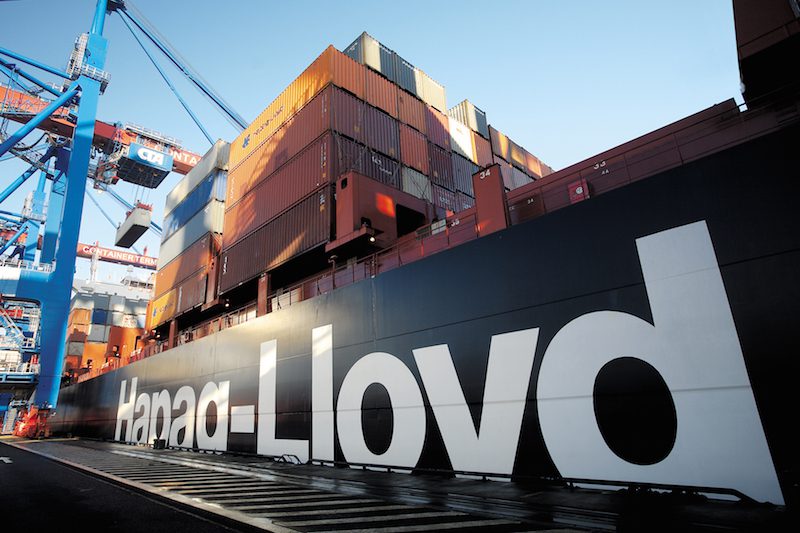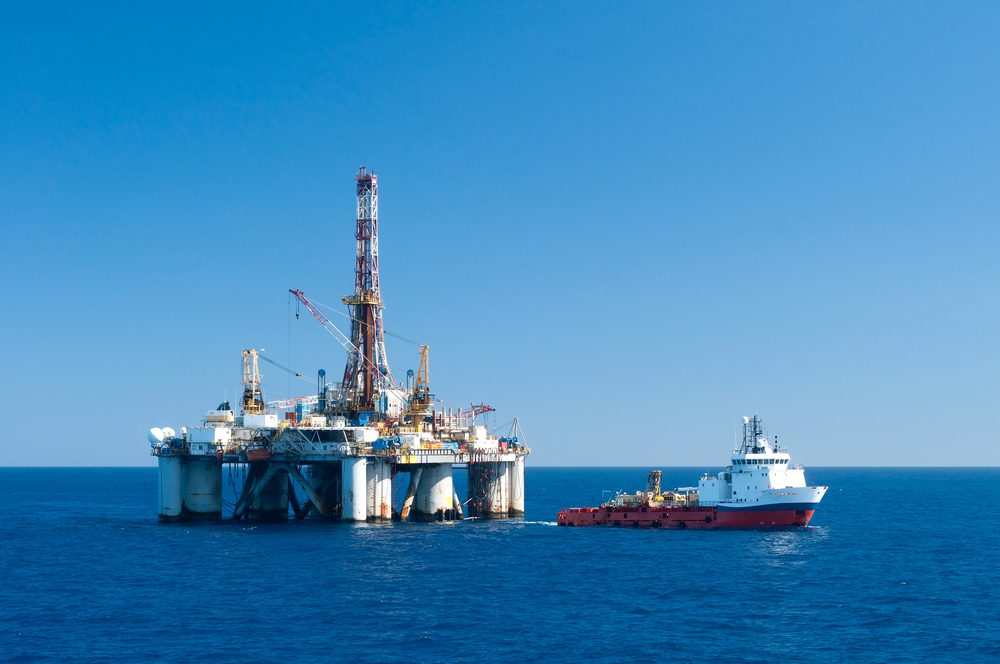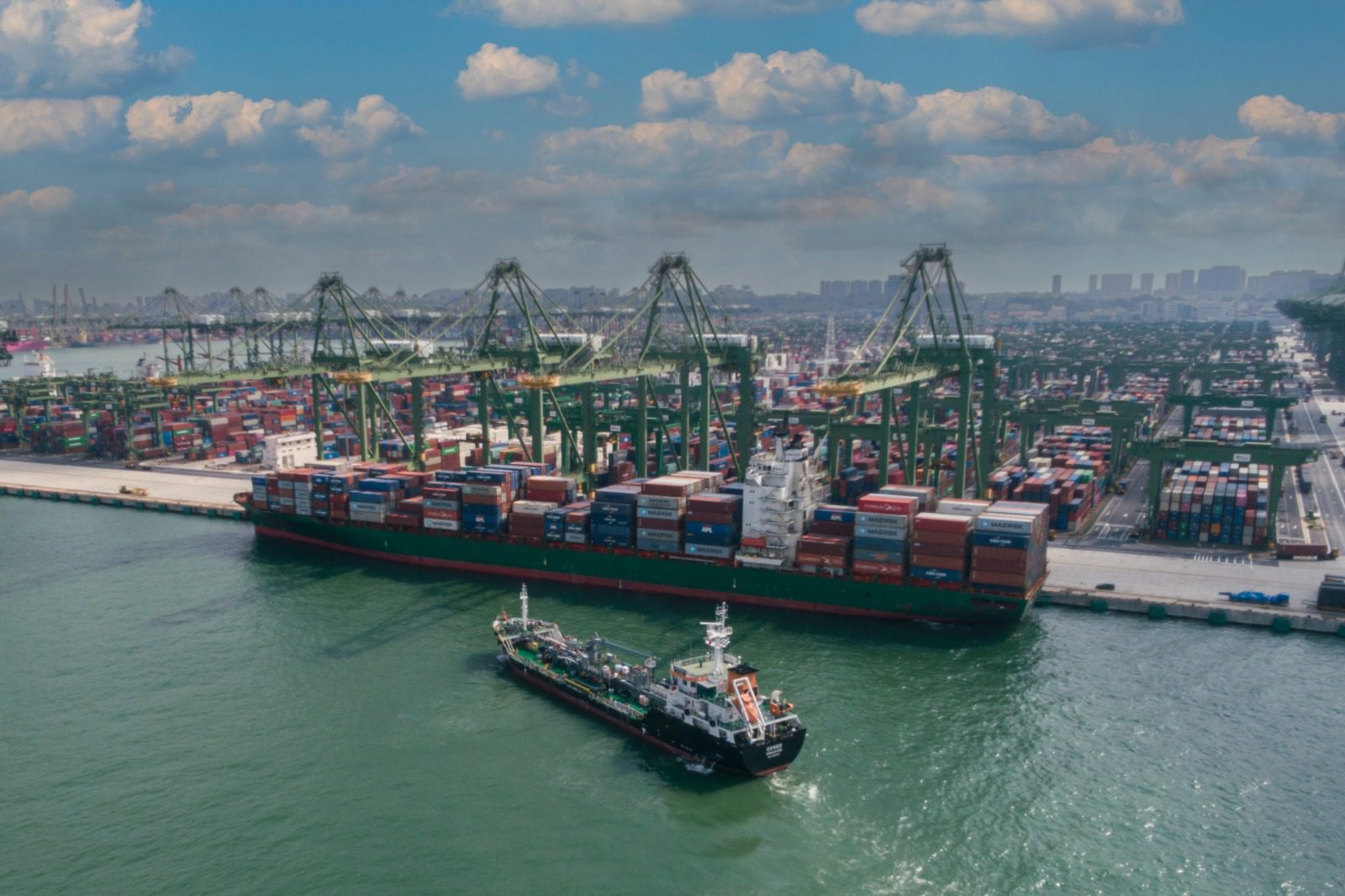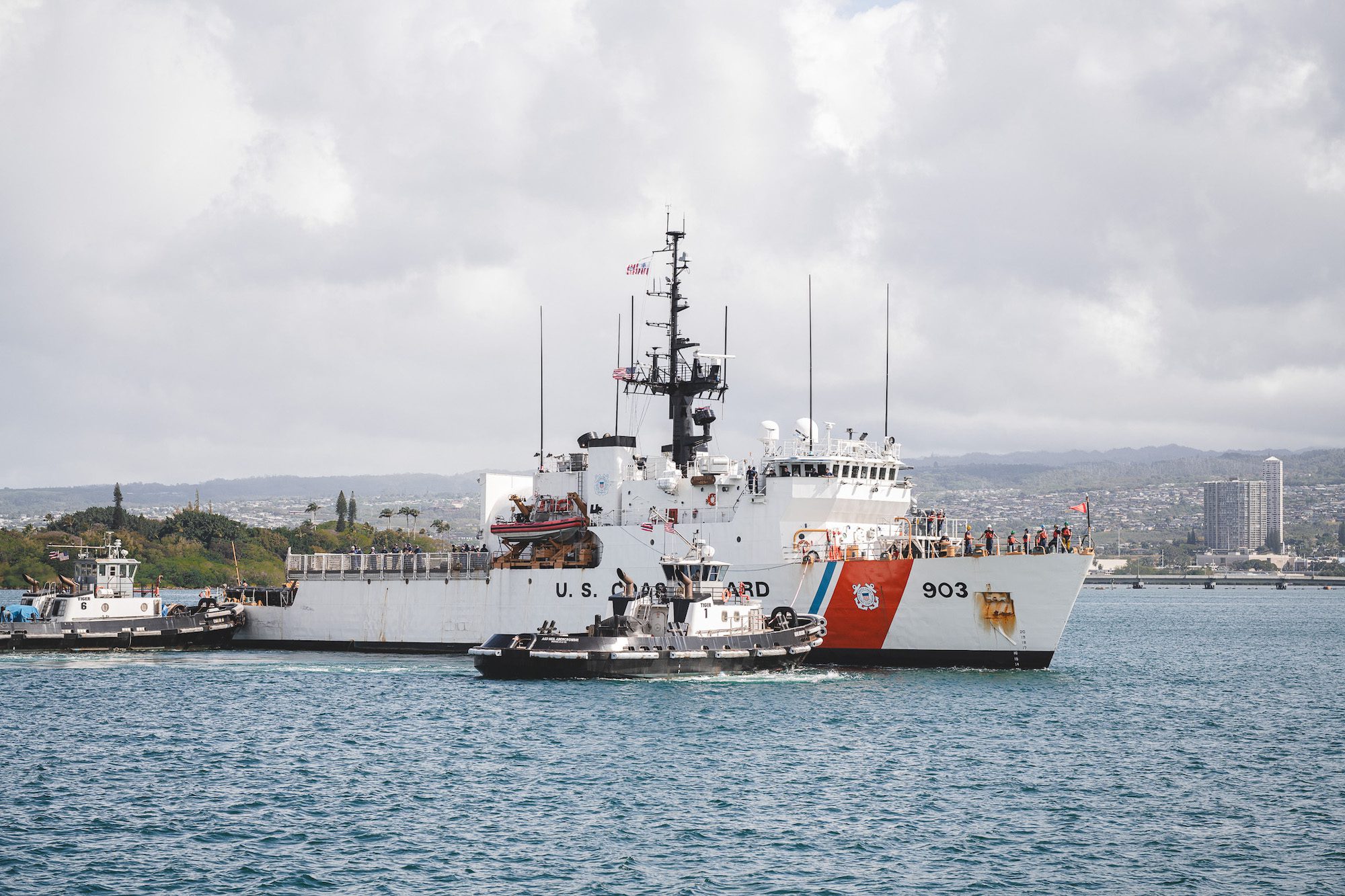Photo: Hapag-LLoyd
Hapag-Lloyd has confirmed that it has in fact terminated its service at the Port of Portland’s ‘Terminal 6’ container terminal, sinking nearly all of what little remained of the port’s container business following Hanjin’s exit last month.
Hapag-Lloyd officially notified the port on Tuesday that its vessels will no longer be calling at Portland after days of speculation and reports that the service had been cancelled.
“In an effort to improve the schedule integrity of our Mediterranean Pacific Service (MPS), Hapag-Lloyd took the decision for a permanent omission of the port of Portland, Oregon effective at the end of March 2015,” Hapag-Lloyd said in a statement. The last vessel to call on Portland was the MV Seaspan Dalian, which departed March 28, 2015, Hapag-Lloyd said.
Hapag-Lloyd’s exit follows the termination of service in March by Hanjin Shipping, which represented 80 percent of the container throughput at Terminal 6, following years of service disruptions that culminated with the recent labor disputes between the ILWU dockworkers union and the Pacific Maritime Association. The departure of Hanjin left only Hapag-Lloyd and Westwood Shipping as the remaining direct calling carriers. With Hapag-Lloyd gone, the terminal has lost nearly all of its container business – about 99 percent according to reports.
A statement Wednesday from ICTSI Oregon, Inc., operator of the Terminal 6 container terminal, said that it was ‘very disappointed’ to hear of Hapag-Lloyd’s decision to cease its direct service.
“Hapag-Lloyd has been very supportive and loyal to the Portland market. Coupled with Hanjin´s recent announcement to leave Portland and discontinue its Asia service, Hapag-Lloyd’s departure will adversely affect regional businesses that rely on Terminal 6,” the statement said.
Despite the sudden loss of business, ICTSI Oregon says it remains committed to the region and attracting new business to Terminal 6 will be its biggest priority.
“Despite these challenges, ICTSI Oregon is committed to this region and will forge ahead to seek new direct container service to Asia and Europe. Retaining and attracting new carriers to Terminal 6 is our highest priority. We are reviewing all options and taking prompt action to generate new business.”
Sill, whether or not Terminal 6 will be able to bounce back is unclear.
“However, attracting new business will be a challenging task,” ICTSI Oregon continued. “For Terminal 6 to be successful, the ILWU must signal to potential container shipping lines that its almost three-year campaign of work stoppages, slowdowns, and safety gimmicks at Terminal 6 has come to an end. While ICTSI Oregon will continue efforts to attract new customers, no carrier will want to make a long-term commitment to the terminal so long as ILWU workers delay cargo and vessels as a strong-arm tactic to get what they want. We hold the ILWU fully accountable for its actions; therefore, it is imperative that the ILWU leadership in San Francisco publicly commit that its efforts to interfere with productivity in Portland are over.”
The Port of Portland has a 25-year lease with ICTSI Oregon for the container terminal, which is the Columbia River’s only deep-draft container terminal.
The withdrawal of Hanjin and Hapag-Lloyd is not expected to impact the Port’s other marine business lines such as autos, grain, minerals, steel, project cargo or liquid bulks.
Unlock Exclusive Insights Today!
Join the gCaptain Club for curated content, insider opinions, and vibrant community discussions.

 Join The Club
Join The Club













